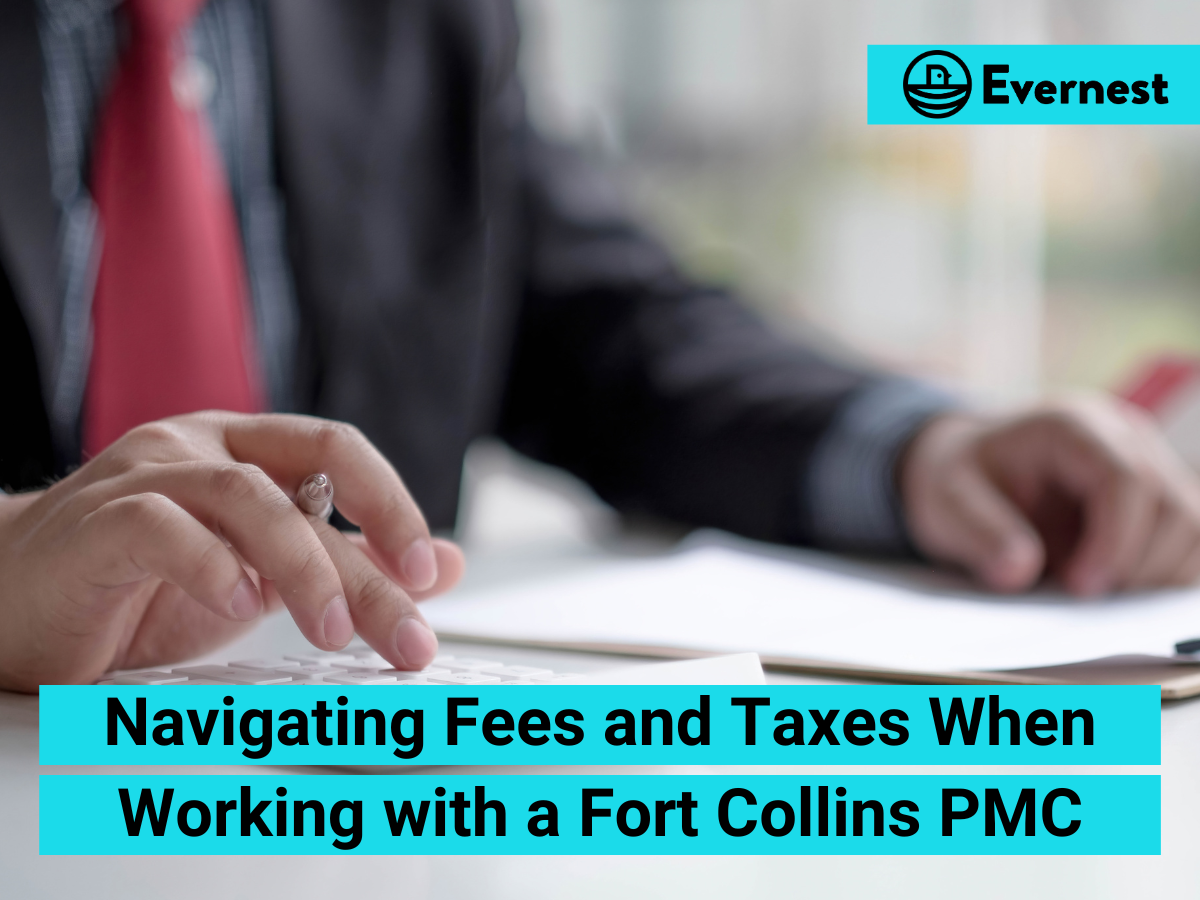Being a landlord can be a lucrative venture, but it comes with many responsibilities. From managing properties and residents to ensuring your finances are in order, there's a lot to consider.
One aspect that often confuses landlords is incurring fees and taxes when working with a Fort Collins property management company. In this article, we'll explore the importance of financial preparedness, the different types of property management fees, tax implications, and how to navigate through it all.
Let’s dive in!
Understanding Property Management Fees
Property management companies provide various services, and as a landlord, understanding the associated pricing and fees will help you budget your expenses accurately and avoid surprises.
Types of Property Management Fees
Property management fees typically fall into three categories: leasing fees, management fees, and maintenance fees.
Leasing Fees: These fees are charged when a property management company finds a new resident for your property. It covers advertising, screening, and lease negotiations. These fees are usually a percentage of the monthly rent or a flat fee.
Management Fees: Management fees cover day-to-day tasks such as rent collection, property inspections, and handling maintenance requests. These fees are typically a percentage of the monthly rent.
Maintenance Fees: Maintenance fees are charged when property repairs or renovations are necessary. These costs may be funded from an allocated maintenance budget or billed separately.
Determining Your Total Management Costs
Calculating your total management costs is essential for accurate financial planning. To determine your overall cost, you need to factor in the leasing, management, and maintenance fees mentioned. Additionally, you should consider any services or fees that might not fall into these categories.
Understanding your total management costs helps you assess the affordability and profitability of hiring a property management company. While their expertise brings value, you must ensure that the potential returns outweigh the expenses.
Note: When considering a few different companies, it might be a good idea to run a comprehensive price comparison.
Tax Deductibility of Management Fees
The good news is that most property management fees are tax-deductible as business expenses, lowering your tax liability. Consult a tax professional to ensure you follow all the necessary guidelines and fully understand the deductions you're eligible for. An attorney can guide you and help you maximize your tax benefits.
Property-Related Taxes
Be aware of your tax obligations to avoid penalties and ensure that you're maximizing your tax benefits.
Property Taxes
Property taxes are a crucial expense for landlords. These taxes are typically based on the assessed value of your property and are paid to the local government. It's important to research the property tax rates in Fort Collins and factor them into your financial planning.
Income Tax Implications
Rental income is considered taxable income, so it's important to report this income on your tax returns to avoid penalties and legal consequences. Additionally, certain expenses related to your rental properties may be tax-deductible, reducing your overall taxable income.
Tracking and Reporting Expenses
By maintaining organized records, you can easily track your income and expenses throughout the year. This will not only save you time during tax season but also help you identify areas where you can cut costs and improve profitability.
Utilizing accounting software can be immensely helpful in tracking your expenses. From online tools to dedicated software programs, there are various options available to streamline your financial management process. These tools also make it easier to generate reports and provide a clear view of your property's financial performance.
Tax Deductions and Credits
Understanding the tax deductions and credits available to you as a landlord can significantly impact your financial situation.
Property-Related Tax Deductions
Landlords are eligible for a range of tax deductions, including mortgage interest, property repairs, insurance premiums, depreciation, and professional fees.
Section 1031 Exchange
The Section 1031 exchange offers a significant tax advantage for landlords looking to sell one property and purchase another. By deferring the capital gains tax, you can potentially save a considerable amount of money. However, the rules and requirements for a successful exchange are complex, so consulting with a tax professional is a good idea.
Working with Tax Professionals: Hiring a Tax Professional
When choosing a tax professional, consider their experience, knowledge of rental property taxation, and reputation. Working with someone who understands the complexities of the industry will help you make informed decisions and avoid any costly mistakes.
Local Tax Regulations and Variations
Tax regulations can vary from one jurisdiction to another, so it's essential to familiarize yourself with the local tax laws in Fort Collins. Understanding the specific regulations and variations in your area will help you plan your finances better and stay compliant with all tax obligations.
Deadlines and Compliance: Tax Filing Deadlines
As a landlord, you need to be organized and adhere to the tax deadlines for filing your returns. Whether it's federal, state, or local taxes, failing to meet these deadlines can result in unnecessary expenses and legal repercussions.
Conclusion, Seeking Professional Guidance, and Additional Resources
In conclusion, navigating the fees and taxes when working with a Fort Collins property management company requires careful planning and financial preparedness.
Seeking the guidance of a tax professional who specializes in rental properties can help you navigate the complex tax landscape, maximize your tax benefits, and ensure compliance with all regulations. Remember to keep detailed records, utilize accounting software, and stay informed about local tax regulations and deadlines.
Being proactive and well-informed will not only help you optimize your rental property's profitability but also provide peace of mind as you navigate the financial aspects of being a landlord.
Looking for a Fort Collins property management company to help out? Contact our local team today!


